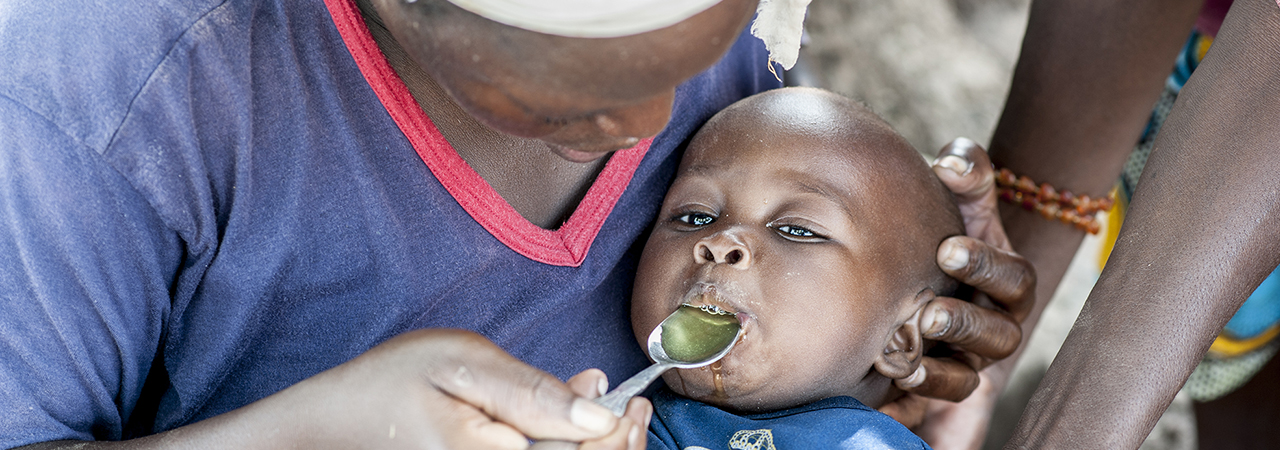

ACCESS-SMC IN THE SAHEL
Half the world’s population —more than three billion people — are at risk for malaria. Our malaria programs focus on prevention, testing, diagnosis and treatment, with a particular emphasis on those most vulnerable to the effects of malaria: pregnant women and children under five.
ACCESS-SMC is supporting National Malaria Control Programs to scale up access to seasonal malaria chemoprevention to save children’s lives across seven countries in the Sahel.
PROJECT DETAILS
Official name of project: Achieving Catalytic Expansion of Seasonal Malaria Chemoprevention in the Sahel (ACCESS-SMC)
Project years: 2014-2017
Countries: 7, but CRS is responsible for implementation in 4 —The Gambia, Mali, Niger and Guinea
Value of project: $67.4 million (total project value for the full consortium); CRS has an allocation of approximately $34 million
Names of donors and partners: Donor: UNITAID
Prime is Malaria Consortium (a UK-based NGO). CRS is the lead sub-recipient.
Other consortium members are:
-London School of Hygiene & Tropical Medicine
-Medicines for Malaria Venture
-Speak Up Africa
-Management Sciences for Health
-Centre de Support de Santé International
What is Seasonal Malaria Chemoprevention?
Seasonal malaria chemoprevention is a relatively new approach recommended by the World Health Organization (WHO) since 2012. It involves the regular administration of anti-malarial medication during the rainy season to children between three and 59 months, the age group most at risk for severe illness and death. The children are given anti-malarials once a month throughout the three- to four-month high-risk season in order to maintain therapeutic drug levels in the blood.
NEED FOR THE PROJECT
WHO estimates that SMC can prevent 75 percent of malaria cases.
Nearly 500,000 children die from malaria each year. This treatment is cost-effective and can be administered by local community health workers, making it a sustainable approach in rural areas.
GOALS OF THE PROJECT
ACCESS-SMC aims to provide up to 30 million seasonal malaria chemoprevention (SMC) treatments annually to 7.5 million children in Burkina Faso, Chad, Guinea, Mali, Niger, Nigeria and The Gambia, potentially averting 49,000 deaths.
ACCESS-SMC will reduce the cost of SMC administration and promote its wider adoption by demonstrating its feasibility and impact at scale.
Research undertaken as part of the project will generate evidence of the safety and efficacy of SMC by strengthening national pharmacovigilance systems and monitoring drug resistance. It will increase the global supply of quality assured anti-malaria medications by incentivizing an additional manufacturer to join the currently monopolistic market.
Finally, ACCESS-SMC will mobilize additional resources so that more children can sustainably benefit from this important intervention both now and into the future.
HOW WE DO IT
CRS is responsible for implementing SMC in four countries in West Africa (Guinea, The Gambia, Mali and Niger). The prime for the project, Malaria Consortium, is implementing the project in three additional countries (Burkina Faso, Chad and Nigeria.)
- CRS will oversee the work of the London School of Hygiene and Tropical Medicine and Speak Up Africa. The London School of Hygiene and Tropical Medicine is responsible for strengthening pharmacovigilance systems in all 7 countries of the project, monitoring any resistance to the medication and evaluating the overall impact of this intervention being scaled-up in conjunction with national research centers in all countries. Speak Up Africa is responsible for developing communications, advocacy, and resource mobilization in the four countries where CRS is responsible for implementing SMC.
HOPE FOR THE FUTURE
- ACCESS-SMC has the potential to prevent 75% of uncomplicated and severe malaria cases in the areas where it will be delivered.
- ACCESS-SMC will increase the global supply of quality-assured anti-malarial products.
- By demonstrating the feasibility and effectiveness of SMC, the project will build a foundation so that this important new intervention may become more widely available.

